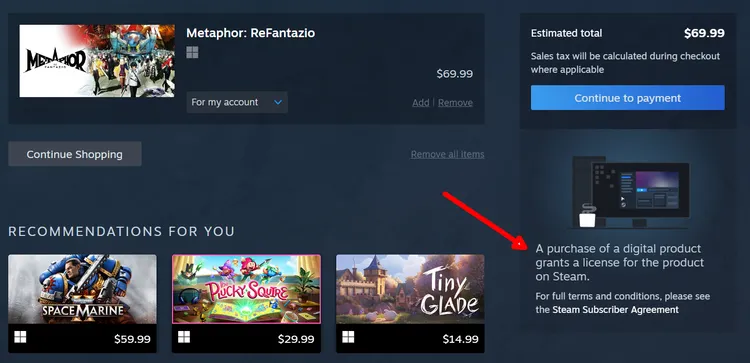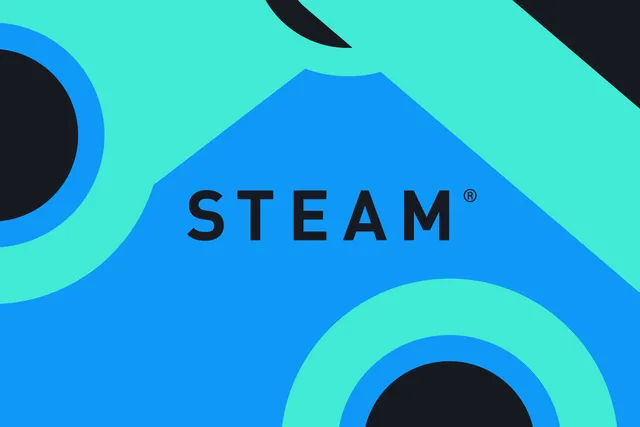Steam is now showing a new disclosure on its store checkout screen that clarifies you don’t actually own a game.
Valve, the company behind the popular digital gaming platform Steam, is now being more transparent about what gamers are actually purchasing. If you’ve bought a game on Steam recently, you may have noticed a new disclaimer on the checkout screen. It states: “A purchase of a digital product grants a license for the product on Steam.” This isn’t just a technical detail—it’s a significant shift in how digital game ownership is presented to customers. As first highlighted by Engadget, this update underscores an important fact: you don’t really “own” the games you buy on Steam. Instead, you’re acquiring a license to use them.
What’s Behind the Change?
This new language likely stems from emerging legal requirements. California, for instance, is set to implement a law that mandates digital storefronts like Steam to explicitly state that users are purchasing a license for digital media, rather than the media itself. This law aims to address growing concerns around digital ownership after several high-profile incidents where companies like Ubisoft and Sony removed purchased content from users’ libraries, blocking access to games like The Crew or certain shows on streaming platforms.
The new law targets platforms that don’t offer offline, downloadable installers, which allow users to continue accessing content even if the service shuts down. Good Old Games (GOG), which offers DRM-free downloads, remains an exception, as its model allows users to own and control their games offline.
Valve’s decision to update its checkout page with this new disclaimer appears to be a preemptive move to comply with the upcoming legal landscape. By disclosing that purchases are licenses and providing a clear link to the relevant terms and conditions, Steam is getting ahead of potential regulatory issues.

Why Does It Matter?
For many gamers, this may feel like a wake-up call. When you “buy” a game on a platform like Steam, you’re not actually purchasing a permanent, physical copy of the game, as you would in a store. Instead, you’re purchasing the right to access the game, subject to the platform’s terms of service. This distinction becomes particularly relevant when content is removed from the platform or when digital rights management (DRM) restricts offline access.
Over the years, there have been several examples of digital content being pulled from users’ libraries, sometimes without much warning. This can happen due to licensing agreements expiring, legal disputes, or companies choosing to sunset older products. In these cases, customers can lose access to games they’ve already “purchased,” leaving them with no recourse.
While Valve has historically been good about maintaining access to purchased content, this new disclaimer makes it clear that they, like other digital storefronts, operate on a license model. The shift in wording also aligns with legal trends in the digital marketplace, where consumer protection laws are increasingly focusing on transparency around digital ownership.
The Bigger Picture: Digital Ownership in the 21st Century
The Steam update is part of a broader conversation about digital ownership in an era where most media—be it games, music, or movies—is consumed through online services. With physical media on the decline, consumers are becoming more dependent on platforms like Steam, Apple, and Amazon to access content. However, this convenience comes with trade-offs, particularly when it comes to control and long-term access.
As more laws emerge to protect consumers from unexpected losses of digital goods, we can expect other platforms to follow Valve’s lead. This will likely result in more upfront disclosure about what it means to “buy” digital content, with clearer terms regarding licenses and access rights.
Ultimately, while this new disclosure may feel like a small change, it represents a significant step towards greater transparency in the digital marketplace. As consumers, it’s important to understand the nature of these transactions and to be aware of the limitations of digital ownership—especially as our reliance on digital platforms continues to grow.
Conclusion
Steam’s move to highlight that you’re purchasing a license, not the actual game, is a reflection of both changing consumer expectations and the evolving legal landscape. As more platforms make similar changes, the line between ownership and access will continue to blur. But for now, Valve’s transparency is a step in the right direction, giving gamers the clarity they need to navigate the digital age.
While this may not change how we experience our favorite games today, it does set the stage for important conversations about digital ownership in the future.










